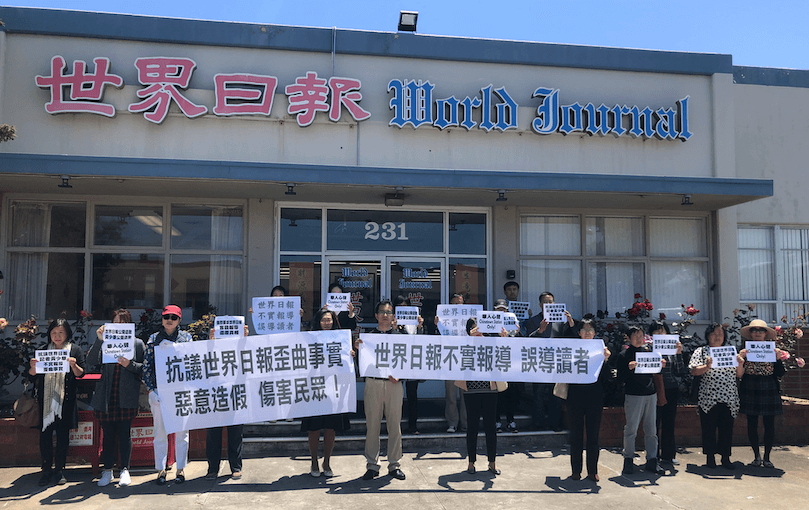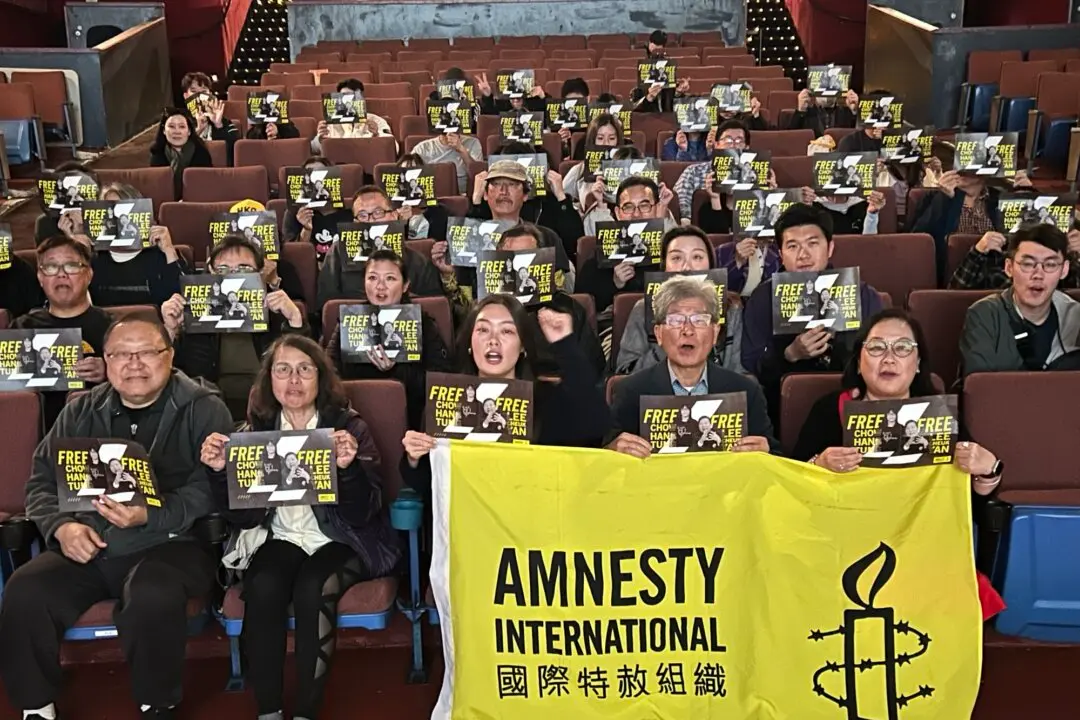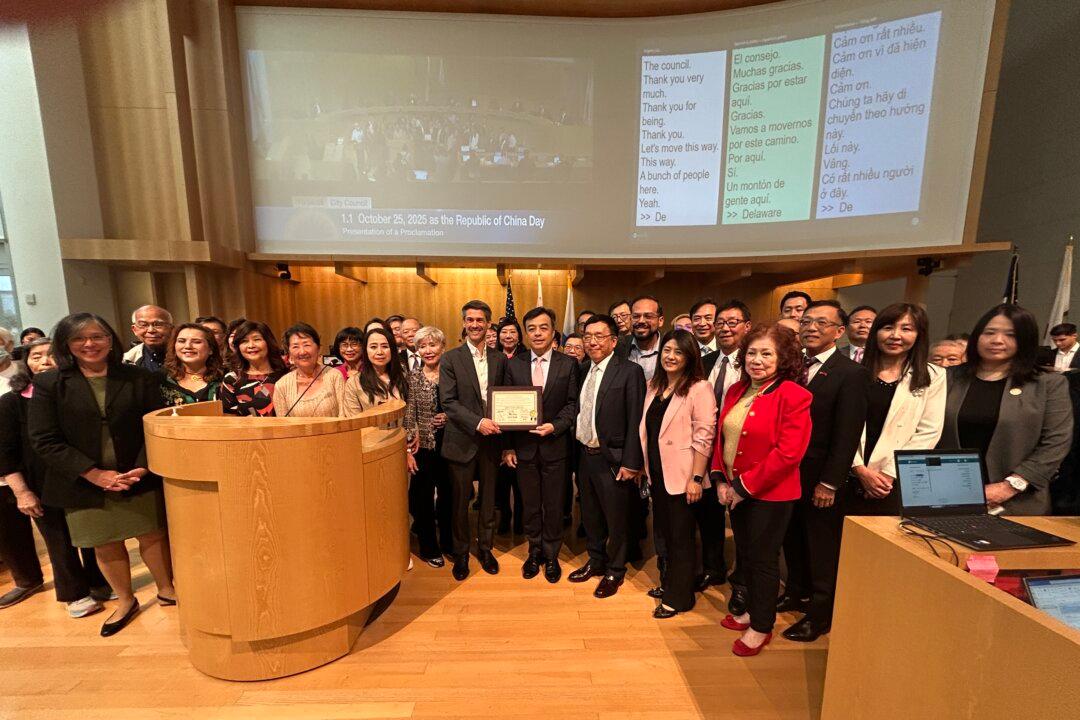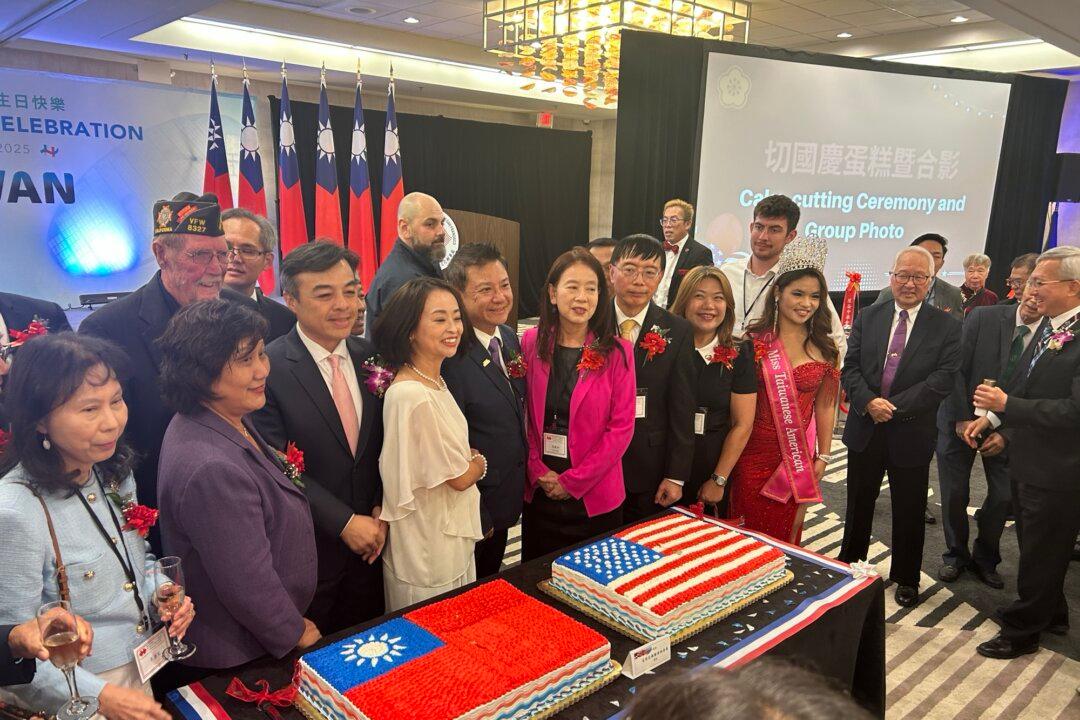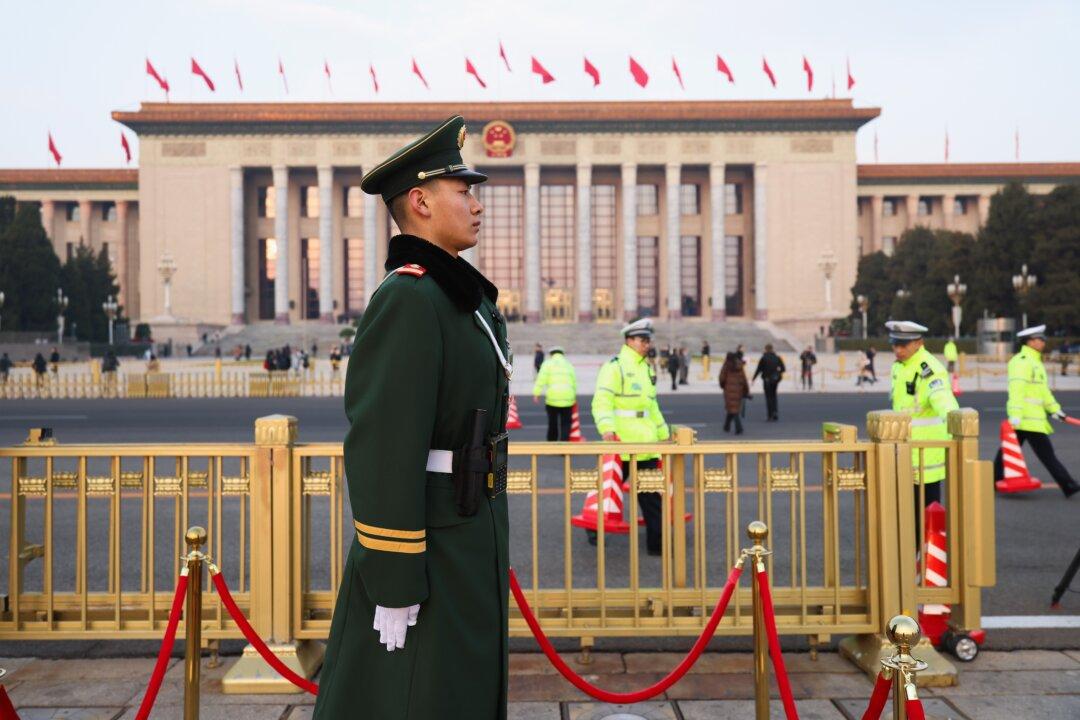MILLBRAE, Calif.—San Francisco Chinatown residents showed up at the office of World Journal, a New York-based, Taiwanese-owned Chinese newspaper, on May 24 to protest a recent report by the paper.
The protesters said the report deviated from the facts, misled readers, and caused harm to the community. They held signs such as “World Journal’s Fake News Misled Readers” and “Protest Against World Journal’s Twisting Facts and Hurting People,” while standing in front of World Journal’s Millbrae office in the early afternoon.
